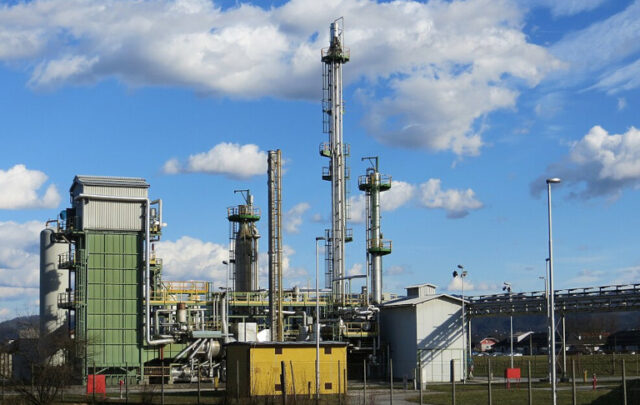Click on the headline (link) for the full text.
Many more articles are available through the Energy Bulletin homepage
Global warming gets less debate than future of oil
Jim Fuquay, Star-Telegram (Texas)
HOUSTON — When the head of the Intergovernmental Panel on Climate Change says he is “delighted” with what he just heard from the head of the one of the nation’s biggest energy companies, it would seem global warming has arrived — even at what is described as the “Super Bowl” of energy conferences.
ConocoPhillips Chairman James Mulva told a lunchtime crowd at Cambridge Energy Research Associates’ 27th annual meeting that a growing consensus on the consequences of climate change demands that the energy industry, as well as the United States, become fully engaged in the debate.
“The train is leaving the station without the industry on board,” said Mulva, whose Houston-based firm has been among the front-runners in supporting “a strong, mandatory framework to control greenhouse-gas emissions.”
That led R.K. Pachauri, chairman of the IPCC, which along with former Vice President Al Gore won the Nobel Peace Prize for their work studying climate change, to joke that Mulva’s comments made his own presentation “redundant.”
Daniel Yergin, chairman of Cambridge Energy Research Associates and author of The Prize, an influential history of the petroleum industry, told several thousand attendees that U.S. regulations on carbon emissions are likely by 2010.
(13 February 2008)
Investors: Don’t blame us for high oil prices
Steve Hargreaves, CNNMoney
Despite increased public scrutiny over investors’ role in $100 oil, they say it’s about diversifying investments, and that trading activity is here to stay.
—
Despite widespread public perception that speculative investing is to blame for high oil prices, big investors distanced themselves from it Tuesday, saying the recent run up has more to do with strong demand, tight supply, and a desire to diversify instead of trading momentum.
“It’s buying into an asset class that has very little correlation to [company stock prices],” said Andrew Safran, Citigroup’s vice chairman for global investment banking, speaking at the Cambridge Energy Research Associates’ (CERA) annual energy conference in Houston Tuesday. “They aren’t really speculators, they are making alternative investments.”
With oil prices near $100 a barrel and gasoline hovering around $3 a gallon, speculative investment from banks and hedge funds has taken heat for adding as much as $30 or $40 to the cost of a barrel of oil. The finger-pointing became especially acute in 2007, when crude prices went from around $50 to nearly $100 in 12 months.
“It’s pure speculation,” longtime Oppenheimer oil analyst Fadel Gheit said in a recent CNNMoney.com story. Nothing has changed from a year ago, he said, he said “Not a single thing.”
Consumer rights groups have also lambasted banks, hedge funds and other oil investors, saying the sheer increase in the number of contracts traded on futures markets is resulting in an artificial price premium.
(12 February 2008)
Oil execs: Crisis coming, but not because of scarcity
Elizabeth Souder, Dallas Morning News
HOUSTON – The Earth is not about to run out of oil.
According to executives of major oil companies, the planet has plenty of oil to feed growing demand for energy. It’s just getting more difficult and more expensive to produce the oil that’s left.
So difficult, in fact, that the head of Hess Corp. predicts the globe could face shortages, price spikes and maybe even political instability in the next decade or so.
“An oil crisis is coming, and sooner than most people think,” Hess chief executive John Hess said during a panel discussion at the Cambridge Energy Research Associates annual conference.
“We need to act now. Unfortunately, we are behaving in ways that suggest we do not know there is a serious problem,” he said.
At issue is whether oil companies are investing enough money to boost production to meet swiftly growing demand and whether governments are setting up hurdles to that process.
Mr. Hess’ colleagues sounded more reassuring about their ability to meet demand, but they also said people will have to pay more money and exert more effort to get the energy they need in the future.
(13 February 2008)
Energy Conference in Houston Includes Focus on Climate Change, US Housing Woes
Greg Flakus, Voice of America
Around 1,900 people have gathered in Houston, Texas for the annual conference sponsored by Cambridge Energy Research Associates, or CERA, a Massachusetts-based firm that brings major energy players together every year to examine the world’s energy picture. This year’s focus includes some issues that are not strictly energy related such as climate change and the US housing crisis. VOA’s Greg Flakus has more from Houston.
This year’s CERA week participants are examining a wide range of issues affecting the world economy, demand for oil and the prospects of suppliers to keep up with demand. Three of the world’s top economists are here this week: Former US Federal Reserve Chairman Alan Greenspan, Harvard University Economics Professor Kenneth Rogoff and Yale University’s Robert Shiller.
One session examines the mortgage and housing problems in the United States and the impact it could have on the overall slowdown in the economy. Another focus is climate change. R.K. Pachauri, chairman of the United Nations Intergovernmental Panel on Climate Change is on hand and there are a number of sessions devoted to examining alternative fuels.
CERA’s Senior Director of Cost Research Richard Ward tells VOA that the idea of the weeklong conference is to examine all issues affecting energy demand and production so that planners can move forward with a clear view of what’s ahead.
“One of the things that is important about CERA week is that we bring together people with diverse views of the future, we debate them and we try to find the strengths and weaknesses of things and help people make better decisions about where they are going to build the energy infrastructure of tomorrow,” said Richard Ward.
One key player in the world’s oil market is Saudi Arabia, the nation considered to have the largest reserves. Abdallah Jumah, president of the Saudi state oil company, Saudi Aramco, told participants Tuesday that his company plans to expand production capacity to 12 million barrels a day by the end of 2009. He rejected claims by Houston analyst Matt Simmons and others that Saudi Arabia’s main fields are in decline and that the country will not be able to continue expanding its production.
Such discussions are what draw many participants to Houston from halfway around the world. The state of the energy market is of critical importance to countries like India where rapid economic expansion is based on availability of oil.
Sunjoy Joshi came to the CERA conference from a New Delhi research organization to learn more about the world energy situation.
“Energy security is one of the key areas we are looking at and, as a focus area, we are looking at energy security for India, in particular, and the new, emerging global order,” said Sunjoy Joshi.
Demand for energy in both India and China have driven up the price of oil from around $10 a barrel in 1998 to a recent record high of just over $100 a barrel. The price has since fallen back, but Sunjoy Joshi says he sees nothing on the horizon, not even a possible recession in the United States, that would significantly slow growth in the two Asian nations.
“The surprise is that both India and China have been able to maintain their very high rates of growth,” he said. “Oil prices started spiking about 2002 and they just kept on going up. People started looking at $30 and $40 and $50 and said that now the slowdown was going to come. But these countries did not slow down.”
Joshi says neither India nor China have been big consumers of natural gas compared to other nations, but that both nations are now looking to modernize their energy infrastructure and reduce pollution by using more gas. This could put more pressure on the natural gas market in the years to come.
(13 February 2008)





